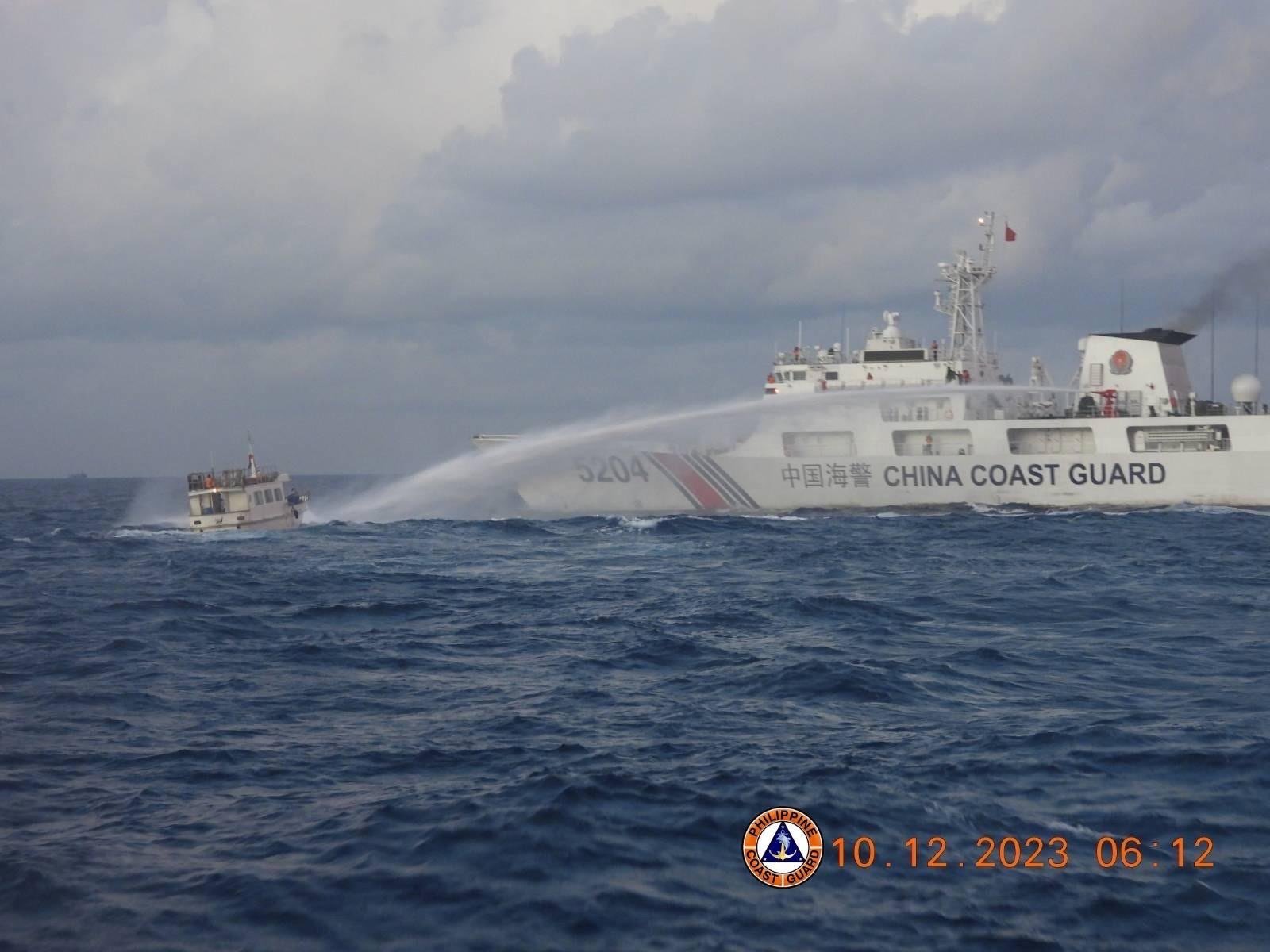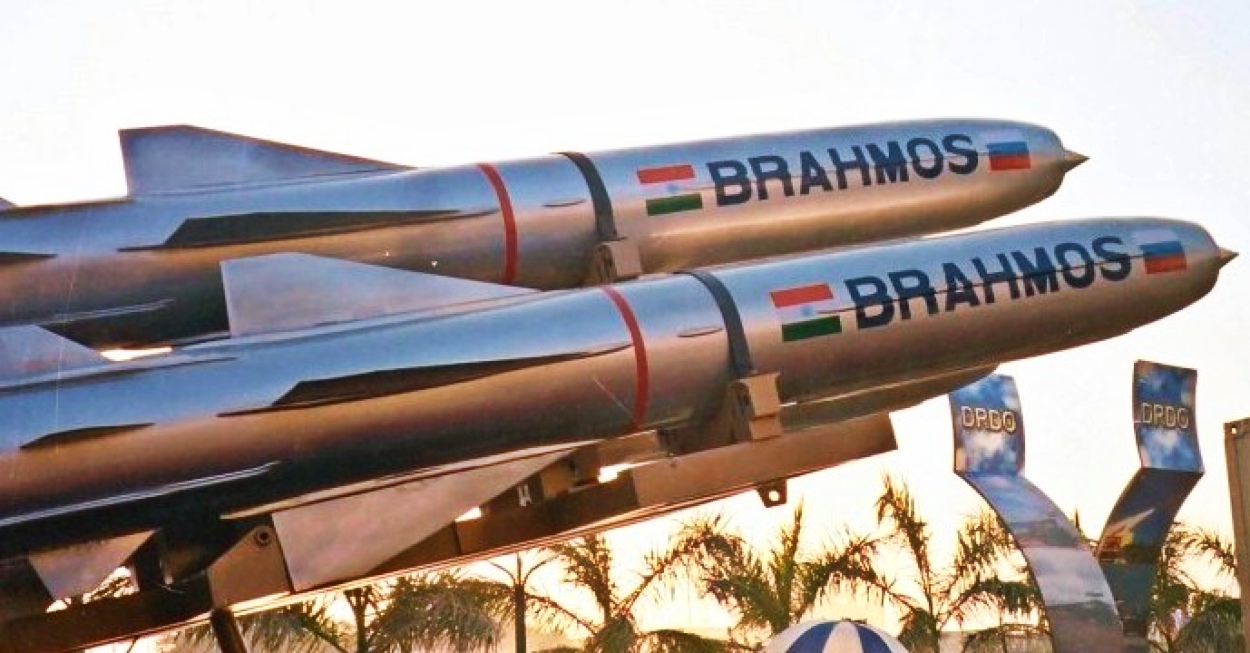As Filipino President Ferdinand Marcos Jr embarks on his trip to Vietnam next week amid rising tensions with China, an agreement on military cooperation between the coast guard of the two countries is reportedly on the cards.
A copy of the final draft of the Memorandum of Understanding (MoU) accessed by Inquirer states that the goal of maritime cooperation between the coast guards of the Philippines and Vietnam is “to strengthen understanding, mutual trust and confidence of cooperation… towards the promotion, preservation, and protection of their mutual interests in the Southeast Asian region.”
The speculation about a potential agreement comes amidst escalating tensions in the South China Sea, where the Philippines and China remain marred in territorial dispute over the Second Thomas Shoal. On its part, Manila fears that Bejing will invade the shoal, a resource-rich waterway that acts as a primary shipping corridor.
The Chinese Coast Guard and Filipino vessels have clashed several times in the past few months while the latter were on missions to replenish their warship “Sierra Madre,” which was run aground decades ago and has since served as a Philippine military outpost in the disputed shoal.
Making matters worse, a Filipino fisher boat was recently ordered to dump its catch back in the disputed shoal and then chased away by Chinese officers. All these hostilities have triggered fears of a broader armed conflict between the two sides, which could involve the Philippines’ ally, the United States.
#News: The Philippines and Vietnam are expected to sign a Memorandum of Understanding on Maritime Cooperation between their Coast Guards in Hanoi next week.
Both sides aim to improve their cooperation pursuant to relevant laws and conventions to which they are parties. 🇵🇭🤝🇻🇳 https://t.co/yBtKSRfcpZ pic.twitter.com/Y2ufKYKrWH
— Keen Sentinel (@Keen_Sentinel) January 23, 2024
Against that backdrop, the Marcos administration is courting like-minded countries to bolster its position in the region. Since Vietnam remains at loggerheads with China in the South China Sea, it has emerged as a natural choice for defense cooperation for the Philippines.
As per reports, it is believed that with such an agreement, Vietnam and the Philippines will be able to conduct their operations under “principles of international law, the national laws of each party, and international conventions to which both countries are parties” and better handle disputes in the contested waters.
Although the strain in ties between Vietnam and China has somewhat been eased after Chinese President Xi Jinping visited Hanoi in October after six years, the Vietnamese administration likely remains alive to the challenges it faces with growing Chinese assertiveness in the contested South China Sea.
For instance, Vietnam’s Exclusive Economic Zone (EEZ) witnessed multiple visits by Chinese vessels last summer. Several Chinese research vessels, fishing boats, and civilian ships frequented Vietnamese waters in May. Chinese vessels were accused of attempting to derail Vietnam’s oil and gas exploration operations.

Hanoi, on its part, fiercely opposes Beijing’s “nine-dash line,” a geographic designation it employs to assert nearly complete sovereignty over the South China Sea.
Next week, President Marcos will travel to Vietnam for the first time this year to deepen their expanding strategic alliance. The Philippines and Vietnam hope to expand their collaboration in information sharing, people-to-people exchanges, agriculture, culture, education, and the environment.
Last year, as the Vietnamese ambassador to The Philippines vacated office, Marcos said a maritime agreement with Hanoi would be a “huge step” for both countries and “bring an element of stability to the problems we are now seeing in the South China Sea.”
However, the Marcos government is also making outreaches and strengthening defense ties with countries having similar interests and aversion to Chinese expansion and aggression in the region and beyond.
The Philippines Is Standing Up Against China
United States
Amid mounting concern over China’s increasing assertiveness in the disputed South China Sea, the Philippines granted the US military access to four additional bases in the Philippines last February, bringing the total number to nine. The United States already had access to five military bases in the Philippines under the 2014 Enhanced Defense Cooperation Agreement (EDCA).
As tensions continued to rise over the following months, the cooperation between the two treaty allies only became stronger. After a significant confrontation between Chinese and Filipino coast guard vessels in late October, the US President reiterated his “ironclad” defense commitment to the Philippines and assured that the US would come to the Philippines’ support in case of an attack in the South China Sea (SCS).
Recently, Filipino Defense Minister Gilberto Teodoro Jr said his country is preparing “more robust” military operations with the US and its allies in response to a “more aggressive” China. “The alliance with the US is solid. We want to build up our capabilities to contribute to regional stability more effectively.”
Additionally, the Philippines is forging new connections with “other allies and like-minded countries,” such as Australia, Japan, Britain, and Canada, in response to China’s perceived threat of “domination” in the South China Sea.
Canada
The Philippines and Canada inked a MoU on defense cooperation earlier this month. The Filipino defense minister stated that this development could eventually result in a troop agreement between the two nations.
The specifics of a potential Visting Forces Agreement (VFA) between Canada and the Philippines are unknown. Thousands of US troops can rotate in and out of the Philippines for war games and drills because of an existing VFA between the two countries.
According to the Filipino Ministry of Defense, the memorandum will accelerate collaboration between the military and defense establishments of both nations on military education, training exchanges, information sharing, peacekeeping missions, and disaster response.
Japan
In the first quarter of this year, the Philippines hopes to conclude an agreement with Japan that would allow for the stationing of military personnel in each other’s nations. Both Manila and Tokyo are staunch allies of Washington, and there are speculations that the Pentagon promotes their defense cooperation.
The two sides started negotiations for a reciprocal troop arrangement in November last year. This agreement is expected to streamline the procedures for Japan’s Self-Defense Forces and the Philippine military to deploy troops and equipment on each other’s soil.

Moreover, Japan plans to give the Philippines its first security cooperation grant. Tokyo will provide this new kind of support to the forces of nations whose cooperation is essential to Japan’s security and equip them with tools that support law-based security and peace.
While Japan is a reasonable partner for the Philippines due to its stakes in the Indo-Pacific and its conflicts with China, Manila has also been courting other countries like India.
India
In November last year, India offered to supply the Philippine Coast Guard (PCG) with at least seven ALH Mk III helicopters for rescue and humanitarian missions in a national emergency.
The President of the Philippines announced on November 5 that the government’s continuous efforts to improve the country’s ability to conduct rescue and humanitarian operations would be significantly supported by India’s promise to provide helicopters to the PCG. Manila purchased the cutting-edge BrahMos cruise missiles from New Delhi in 2022.

Australia
In November last year, the Philippines and Australia began their first joint sea and air patrols in the South China Sea as the two countries reasserted their commitment to a rules-based order. It was a three-day exercise conducted in the West Philippines Sea, as Manila calls it.
#Australia and the #Philippines are conducting the inaugural joint patrols in the PH EEZ from Nov. 25 to 27.
Royal Australian Navy’s HMAS Toowoomba and a P-8A maritime patrol aircraft are participating.
Philippine Navy’s BRP Gregorio del Pilar & BRP Davao del Sur & 5 PH Air… pic.twitter.com/heazuJS6I1
— Indo-Pacific News – Geo-Politics & Defense News (@IndoPac_Info) November 25, 2023
“Australia and the Philippines are firmly committed to the peaceful, secure, and prosperous region, where sovereignty and agreed rules and norms are respected,” Australian Deputy Prime Minister Richard Marles said in a joint statement posted by Marcos. “The first joint patrol between the Australian Defence Force and the Armed Forces of the Philippines demonstrates this commitment,” Marles said.
France
Additionally, the Philippines agreed to begin talks with France for a defense agreement allowing troop visits. In 2023, it carried out the most extensive version of its famous military exercise in over thirty years.
Manila has often stated that considering the stark differences in size and strength between its Coast Guard and Navy and those of China, it will need more help from its friends.
Analysts have projected that Manila might need assistance from Washington to assemble a regional coalition of nations that remain at odds with Beijing. Nonetheless, the Marcos administration has not yet issued such a request and appears to be looking for bilateral agreements for collaboration.
The potential defense agreement with Vietnam indicates that the Philippines is strengthening its military alliances. According to Marcos, a marine pact between the two nations would be a “huge step” and “bring stability to the problems we are now seeing in the South China Sea.”
When handling “territorial disputes in the South China Sea,” he stated that the strong relations between the two nations would facilitate their ability to confront “common challenges.”
It is believed that a bilateral deal of this kind would also form the cornerstone of a unified front with other ASEAN members, who have been debating with Beijing a code of conduct that is thought to be essential to defusing tensions in the South China Sea.
- Contact the author at sakshi.tiwari9555(at)gmail.com
- Follow EurAsian Times on Google News




